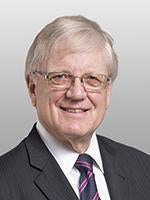Last year, we highlighted the Court of Federal Claims’ (“COFC”) decision in Starry Associates, Inc. v. United States, 127 Fed. Cl. 539 (2016), which sharply criticized a Department of Health and Human Services (“HHS”) decision to cancel a solicitation, a rare rebuke in an area where agencies enjoy considerable deference from the courts. The Court’s decision noted the unique circumstances of that case—a series of agency actions resulting in the cancelation of the solicitation at issue that the Court characterized as “capricious” and “reflect[ing] a lack of fidelity to the procurement process.” That cancelation resulted in multiple GAO protests, a hearing at GAO, multiple depositions of agency officials during a follow-on protest at the Court, and a decision enjoining HHS from cancelling the solicitation (raising the interesting question of whether HHS must now award the contract to Starry Associates). In a subsequent decision issued in the case last week, Starry Associates, Inc. v. United States, No. 16-44C (Fed. Cl. Mar. 31, 2017), the case’s exceptional nature was further demonstrated by the COFC’s decision to award “enhanced” attorney fees to plaintiff’s counsel.
After successfully challenging HHS’s cancellation of a solicitation for business-operations services, Starry filed a motion for attorney fees pursuant to the Equal Access to Justice Act (“EAJA”). The government can avoid an award of EAJA fees upon a demonstration that the positions it took were “substantially justified,” a deferential standard requiring only that such positions were reasonably based in both law and fact (though the Court noted that both DOJ’s position before the Court, as well as HHS’s position throughout the proceedings were relevant to this inquiry). Defending its conduct in this case, the Department of Justice (“DOJ”) asserted that it reasonably relied on prior GAO decisions and agency representations regarding the case history. The Court was unconvinced, observing that the “record as further developed in this protest ought to have thoroughly disabused defense counsel of any notion of rationality” behind HHS’s decision to cancel its solicitation. In light of a record that “contains a lengthy history of agency personnel being indifferent to the fidelity of the procurement process,” the Court concluded that “[a]t no point was the government’s position reasonably justified based on the law or the facts,” such that Starry was “entitled to recover fees and costs under EAJA.”
Because of the EAJA’s statutory cap on the amount of fees awards, Starry also requested an upward departure. The EAJA allows for awards in excess of the statutory cap if a court determines that a “special factor” justifies a higher fees award. After rejecting DOJ’s argument that “special factor” departures were only warranted in instances where the proceedings could be handled by a very limited number of attorneys, the Court described two grounds for its decision that Starry was entitled to an enhanced fee award. First, the Court highlighted HHS’s problematic conduct, noting that “what the agency did here constitutes an egregious example of intransigence and deception, not just with regard to the bidder, but to the GAO and to the court.” Second, the Court cited the extensive procedural history Starry needed to navigate to obtain a favorable outcome in this case. The Court concluded that the “extreme measures that plaintiff was forced to pursue to vindicate its right to a rational and lawful federal procurement process, combined with the shocking disregard of the truth by the agency, justif[ied] an award at higher than the default rate.”
While the COFC’s ruling on the merits was in and of itself noteworthy, its subsequent award of enhanced EAJA fees makes this case truly exceptional. The Court acknowledged as much, noting that its holding was “not applicable across a broad spectrum of litigation,” but when an “agency’s conduct necessitates that an offeror file four protests in over two years, in two fora, winning two of them and prompting one corrective action, and when the agency’s defense of its conduct is highly irregular (misrepresentations and illusory promises), the circumstances of the case are anything but ordinary.” Despite the ruling’s narrow scope, the case sets an important precedent reminding government agencies that the deference owed to their determinations is no substitute for compliance with the requirements of, and fidelity to, the federal procurement process.





 />i
/>i


